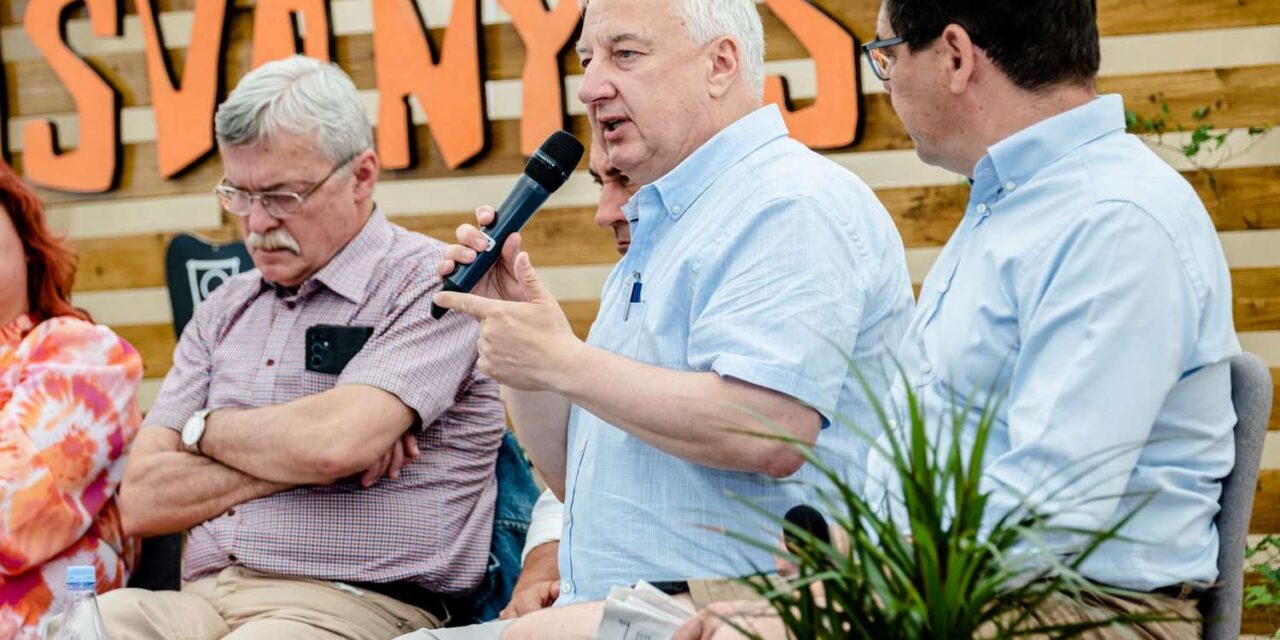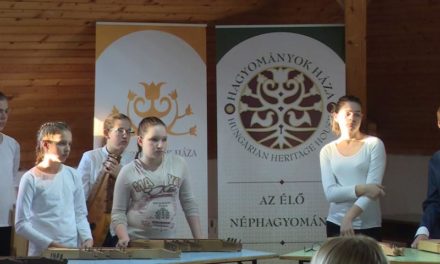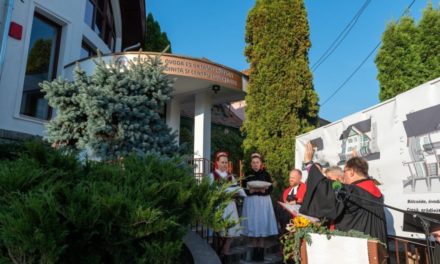A virtual national space will be created, within the framework of which every Hungarian citizen will have access to the entire Hungarian public media and state media, Deputy Prime Minister Zsolt Semjén announced on Friday in Tusnádfürdő.
At the National Round Table held in Tusványos, the politician said: this is a virtual part of national unification, through which the problems related to the broadcasting of sports, cultural and public life programs will basically be solved.
"Within this framework, every Hungarian citizen has access to the entire Hungarian public media and the entire Hungarian state territory with a simple registration, an IP address, and a digital citizenship, which is truly the 21st century form of national unification," he said .
He recalled that, in terms of national reunification, the expansion of the broadcasting of sports and cultural programs beyond the borders of Hungary has always been a problem, as it is opposed by the European Commission and the member states, especially the successor states and mostly the rights holders.
It is a big step forward that until 2032 they bought the right to broadcast the Winter and Summer Olympics, the broadcast of the qualifiers of the Hungarian national team at the European and World Championships. Cable providers can broadcast 75 major sports events and 15 sports, he said.
The goal is that, in addition to sports, the public media's public and cultural programs can also be received across the border, which is why the virtual national space is needed, as technology is ahead of restrictive legislation. From January 1, every Hungarian citizen can connect to this, no matter where they live in the world
- He told.
Zsolt Semjén presented the achievements of Hungarian national politics since 2010, supported by numbers. He pointed out that the Hungarian state increased the educational support to HUF 100,000, five times the previous amount.
"This is a strong message that it is crucial for the Hungarian state that Hungarian children abroad attend Hungarian schools"
he underlined. He emphasized that it "goes from the cradle to the university" and that more than 220,000 children receive it every year.
"In order for the Hungarian national parts to remain, a strong Hungary is first and foremost necessary," he said, but he believed that help is needed to preserve national identity, naturalization, economic support, and help for ethnic Hungarian parties and organizations.
Zsolt Semjén stated: the Hungarian government increased its national policy subsidies tenfold in the first year after 2010, which have been increasing every year since then. This means HUF 100 billion per year, to which additional resources are added. Since 2010, 50,000 grants worth HUF 500 billion have been made, he said.
He called the reinstatement of the Hungarian Standing Conference (MÁÉRT), which determines the direction of national politics and institutions of national importance, important. There are 96 such institutions, and they receive a total of HUF 155 billion in support, he said.
He recalled that in the past period, around 1,000 kindergartens were built and renovated beyond the borders of Hungary, and more than 3,000 churches are being built and renovated in the Carpathian Basin. "None of them will become mosques or shopping malls," he said, referring to the situation in Western Europe.
Within the framework of the Sándor Körösi Csoma and Sándor Petőfi programs, a total of a thousand scholarship holders have gone out to help Hungarian organizations abroad. Within the framework of the Határtalanul program, 500,000 seventh-grade children were institutionalized across the border, and the parts of the nation are already in contact with each other.
Zsolt Semjén also touched on sports subsidies and the importance of family support, the elements of which are being tried to be extended beyond the border.
He spoke about the fact that a paradigm shift has taken place in the area of economic support, since in order for the Hungarian communities abroad to be able to survive,
it is not enough to preserve one's identity, one must also ensure one's livelihood. Therefore, the Hungarian government supports 60,000 tenders, investments worth HUF 424 billion were made.
"Every forint that the Hungarian state invests abroad generates two forints there," stated Zsolt Semjén. He called the expansion of Hungarian citizenship important, as he said that in the past period "more than 1 million 100 thousand of our compatriots have become our compatriots and fellow citizens. He called this the goal of his personal life".
In connection with the war in Ukraine, he emphasized: Hungary, as a state with a Christian civilization, can only stand on the side of peace, and represents the position closest to that of Pope Francis. In his opinion, peace requires two things: guaranteeing security to everyone and guaranteeing the rights of minorities.
Hungary does not want another Iron Curtain, even if it is now on its western side, it is in its interest that there be no war and no new Iron Curtain at all, he said. Therefore, he calls for an immediate cease-fire and then the start of peace negotiations as soon as possible, explained the deputy prime minister.
MTI
Cover photo: Zsolt Semjén's Facebook page












